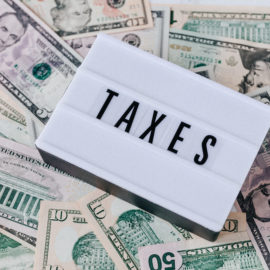
This is a free excerpt from one of Shortform’s Articles. We give you all the important information you need to know about current events and more.
Don't miss out on the whole story. Sign up for a free trial here .
What drives businesses to position themselves as “anti-woke” alternatives in today’s market? Can companies truly succeed by aligning themselves with specific political ideologies?
The rise of the anti-woke economy marks a fascinating shift in American consumer culture, where businesses are increasingly taking political stances to attract conservative customers. From streaming services to coffee brands, companies are creating parallel marketplaces that reject progressive values and cater to traditional viewpoints.
Keep reading to discover how these ideologically-driven businesses are performing and what their future might hold in an increasingly polarized marketplace.
The Emerging Anti-Woke Economy
A growing number of US businesses are catering to conservative consumers by positioning themselves as alternatives to perceived “woke” brands. However, many of these ventures within the “anti-woke” economy face significant market challenges, including financial losses and limited consumer traction. As political polarization deepens in American life, it remains uncertain whether these ideologically driven businesses will be sustainable or temporary.
We’ll explore what’s driving the growth of “anti-woke” businesses, how these ventures are faring in the market, and whether this trend will endure or prove fleeting.
Context
In recent years, a growing number of businesses have adopted and promoted conservative viewpoints to appeal to customers seeking to avoid brands they deem too politically progressive. These consumers believe in spending their money in alignment with their values and are boycotting companies they consider “woke,” including businesses supporting LGBTQ rights, diversity, equity, and feminist causes.
However, they’re not just boycotting “woke” products—they’re choosing “anti-woke” alternatives, creating a parallel economy. Proponents envision this sector growing to include everything from anti-abortion protein bars and teeth whiteners to financial advisory services, health plans, and cell phone carriers.
This economy is bolstered by websites such as buywokefree.com, which rates companies’ level of political progressiveness based on their marketing strategies and commitment to diversity, equity, and inclusion (DEI) practices, and connects conservative consumers with like-minded businesses.
(Shortform note: Douglas Murray explains what “woke” is in his book The Madness of Crowds. While the term originally meant being aware of social injustices, Murray contends that modern wokeism has become extreme and intolerant, seeing any perceived slight against minorities as systemic oppression. He describes how wokeism encourages public displays of atonement from dominant social groups [particularly white people], but he argues these displays are often insincere and motivated by self-preservation or personal gain rather than genuine empathy for minority groups’ experiences.)
Woke Capitalism’s Track Record
The blending of business and ethics isn’t a new phenomenon. In the past, segregationists targeted companies for supporting integrationist causes and boycotted TV shows with interracial casts. A century earlier, the North and South engaged in rival boycotts, with the former promoting “free produce” stores that avoided slave labor and the latter countering with a movement to boycott Northern-made goods.
Similarly, in colonial societies, the professional class often framed their economic endeavors as virtuous, using this perceived moral high ground to justify their control and exploitation of colonized lands and peoples. This narrative allowed them to present colonialism as a civilizing mission, obscuring the violence and oppression being perpetuated under the guise of virtue and progress.
(Shortform note: In Conscious Capitalism, John Mackey and Rajendra Sisodia argue that businesses must adapt to society’s evolving values and ethics to survive. As people become more enlightened and connected, they reject businesses that don’t align with their values. The authors promote conscious capitalism as a business model that benefits all stakeholders [customers, investors, society, and environment], contrasting it with traditional capitalism that prioritizes profit above all. They believe that, if widely adopted, conscious capitalism could lead to global prosperity and innovation, ultimately solving major societal problems.)
Today’s “anti-woke” economy versus “woke capitalism” debate can be seen as a continuation of this pattern, with companies facing criticism for either:
- Superficially adopting progressive policies for the primary purpose of profiting off them.
- Engaging in social issues that some believe should be separate from business—as seen when Bud Light was accused of virtue signaling for enlisting transgender TikTok star Dylan Mulvaney to market its low-calorie beer.
| Wokenomics In Woke, Inc., Vivek Ramaswamy asserts that “Wokenomics” emerged when companies realized they could increase profits by advocating for social justice. This trend developed after the 2008 recession, when public blame shifted from economic policy to systemic racism. Companies embraced two key concepts to improve their image: • Stakeholder Capitalism: Unlike traditional corporate models focused solely on shareholders’ profits, this approach considers the welfare of employees and communities in business decisions. • Critical Race Theory (CRT): An academic concept arguing that racism is embedded in American institutions and legal systems. Ramaswamy explains how banks took advantage of government policies after the 2008 recession by donating to nonprofits instead of paying full fines, generating positive publicity while actually reducing direct aid to affected Americans. Ramaswamy criticizes this trend, arguing that it gives corporations outsized political influence and that efforts toward diversity and inclusion may prioritize identity over qualifications. |
Businesses Aligned With Conservatism
A growing number of conservative-aligned companies aim to capture consumers who feel alienated by “woke” brands. These businesses, which are positioning themselves as alternatives that embrace traditional values and reject liberal ideologies, include:
- PublicSquare, a marketplace positioned as a conservative alternative to Amazon.
- 1789 Capital, an investment firm that supports “non-woke” companies, and is allocating $15 million in Tucker Carlson’s media company, Last Country.
- The American Conservative Values ETF (ACVF), an investment fund that excludes from its portfolio companies it perceives as too progressive.
- The Daily Wire’s Bentkey, a children’s entertainment streaming service designed as a conservative alternative to “woke” Disney programming.
- Rumble’s 1775 Coffee and Ultra Right Beer, which target right-leaning consumers.
Obstacles to Success
Some brands in the “anti-woke” economy, such as Hobby Lobby and Fox, have seen a boost in customer support. However, other ventures have encountered obstacles in their efforts to gain traction in the market.
- Investment funds such as ACVF are making less money than other general investment options.
- Truth Social, Donald Trump’s social media platform, has seen a significant drop in stock value.
- Gab and Gab Pay, social media and payment platforms, have had difficulty finding a foothold and turned to crowdfunding for support.
- MyPillow faces significant financial losses after major retailers cut ties with the company due to its right-leaning political affiliations.
- One America News (OAN) was dropped by all major cable operators amid low viewership.
- The Right Stuff, a dating site, has been unable to attract a significant user base and suffered financial challenges.
Experts say the failure of these anti-woke initiatives highlights a disconnect between their political rhetoric and market realities. They say it’s also notable that their decline comes as major companies targeted for being woke—such as Apple, Microsoft, and Disney—continue to perform well financially, suggesting that the impact of conservative backlash may be limited.
What’s Next
Experts say it’s unclear whether the “anti-woke” trend will persist. Businesses that align with specific ideologies face unpredictable outcomes—from negative backlash to positive recovery—showing how risky the strategy can be. Further, the “anti-woke” economy features many untested companies whose profitability remains unclear, with some choosing not to disclose their financial details.

Want to fast-track your learning? With Shortform, you’ll gain insights you won't find anywhere else .
Here's what you’ll get when you sign up for Shortform :
- Complicated ideas explained in simple and concise ways
- Smart analysis that connects what you’re reading to other key concepts
- Writing with zero fluff because we know how important your time is






